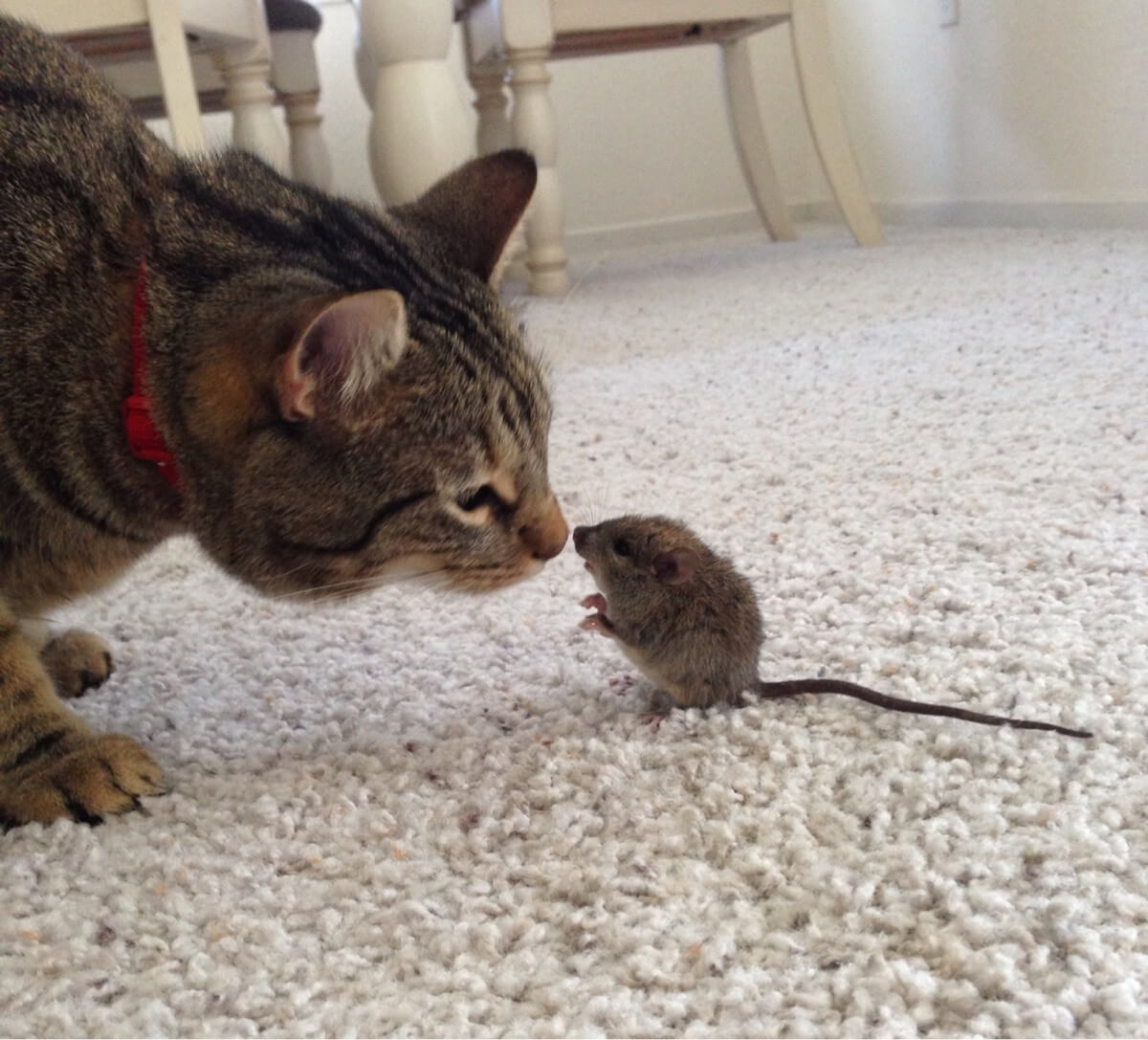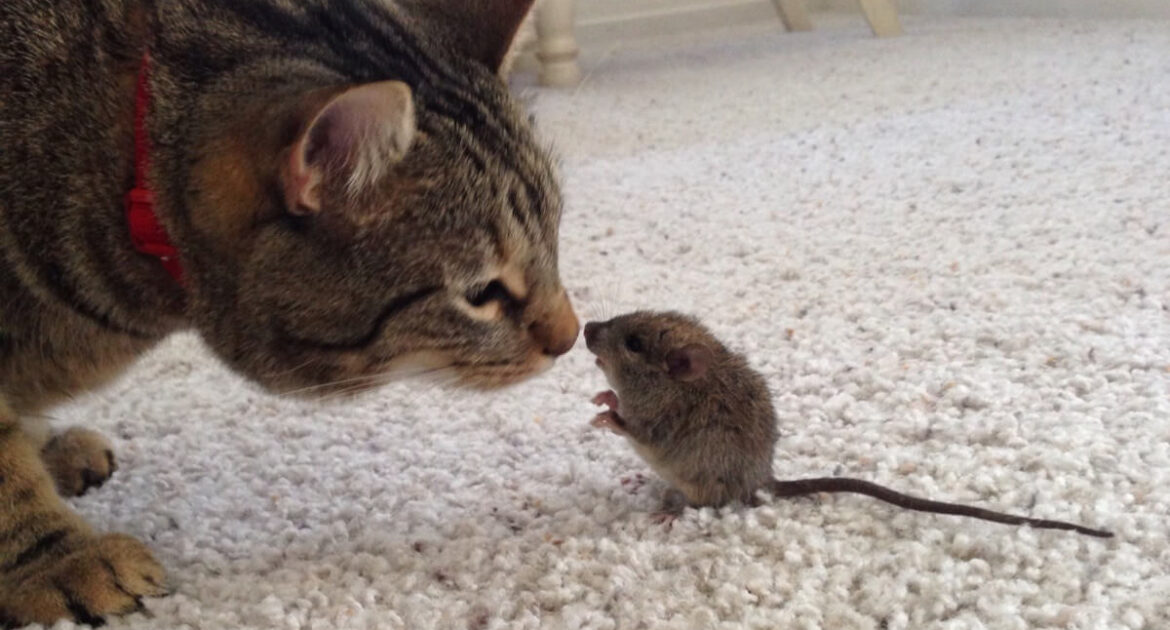Cats make wonderful companions, and there are many good reasons to adopt a cat as a pet. However, pest control is not one of them. Cats’ hunting abilities were the reason that humans first domesticated them approximately 4,000 years ago. Cats still have a strong prey drive and enjoy catching rodents, leading many homeowners to see this as a great way to combat a mouse problem. However, cats put themselves at risk when hunting this small prey. Professional rodent removal helps to protect cats from contracting diseases from mice or rats that could then spread to humans.
Why Are Rodents Bad For Cats?
Cats are obligate carnivores, which means they have to eat meat to survive. Nature has equipped cats to find and catch small prey animals such as mice. A cat’s hunting instincts are triggered by unpredictable skittering movements, such as a mouse might make as it runs across the floor. Their quick reflexes allow them to pounce on prey and quickly dispatch it.
A feral cat may have to rely on catching rodents to survive in the wild. However, mice can carry dangerous parasites that can spread to cats if the cats ingest them. Roundworms are a parasite that lives in the alimentary tract and causes gastrointestinal complaints, such as vomiting and diarrhea. Left untreated, roundworms can cause complications such as intestinal blockage or anemia. Roundworm is easy to treat with medication but it is possible that the parasites could also spread to humans through the cat’s feces.
A cat that eats rodents may also become infected with another type of parasite that causes a disease called toxoplasmosis. This condition can also spread to humans through the cat’s feces and can cause flu-like symptoms such as fever, headache, fatigue, and swollen lymph nodes. However, cats that are infected with toxoplasmosis may show no symptoms. Unlike roundworms, the parasite that causes toxoplasmosis is one-celled and microscopic, meaning that you won’t see them showing up in your cat’s litter box as you clean it.
Why Are Cats Ineffective at Controlling a Rodent Infestation?
If you already have a cat, or you bring a new cat home to a house that is not already infested with mice or rats, the presence of the cat may be enough to keep rodents away. The smell of a predator in the home communicates to the rodents that this is not a safe hiding place, and they may look for shelter elsewhere.
However, if you already have an active infestation, adding a cat to the home will not be enough to control it. The mice already outnumber the cat, and their numbers are growing exponentially every 21 days, which is the length of a mouse’s gestation period. There could be thousands or even millions of rodents living in your home. Even if your cat spent all its time hunting, it wouldn’t be able to get rid of them all, and given the risks that hunting and eating mice can pose for a cat, it would be unfair to expect it to try.
How Can You Keep Your Cat Safe From Rodents?
If you have mice in your home, it is important to try and keep your cat away from them until they have been properly removed. There are many cat toys available that fulfill your cat’s instinctive need to hunt in a safe way. Some are shaped like mice, while others are battery-powered to mimic a mouse’s movement, which can be very effective at triggering a cat’s predatory reflexes.
A cat that sees a mouse will try to chase it. Not allowing your cat to go outdoors is an effective way to keep your cat away from rodents, and having professional rodent removal can keep rodents away from your cat.
Skedaddle’s process involves removing the rodents humanely from the home and allowing them to return to their natural habitat outside. We also find and seal any entry points around your home so that they cannot get back in. To protect your family and your pets from parasites, we decontaminate the areas where the rodents have been. Learn about our rodent removal process in more detail.




